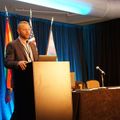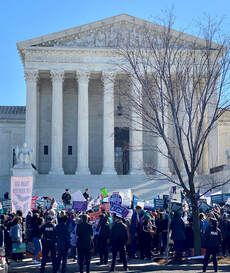
by Jeff B White
If you ever played sports or participated in group activities as a child, you know how important that feeling of being on a team was to you. Imagine being told as a child that you weren’t allowed on that team because of who you are and now you understand the insidiousness that is Idaho’s House Bill 500 (HB500). This is why NEAT has launched an emergency phone banking campaign with Moving Towards Freedom to demand Idaho Governor Little veto this and other anti-transgender bills (more info or get involved at www.theNEAT.org/Idaho).
Not only does HB500 ban transgender youth from participating in sports, but it would also force girls who present as masculine to undergo invasive physical testing. It violates basic privacy rights by requiring educators and coaches to identify and separate transgender youth and potentially “outing” them to their peers and parents. This bill attempts to repair an issue that does not exist by enshrining discrimination into school policy denying basic privacy rights.
As well, HB509 would bar transgender people from updating their gender marker on their birth certificate. This would cause transgender people to be unable to properly identify themselves and defeats the very purpose of identifying documentation. Yet another basic human right that Idaho lawmakers are attempting to seize from transgender people, causing irreparable harm. The right to privacy and identity is essential to people during the gender transition process, according to the American Psychological Association, the American Medical Association, and others.
“We believe in the privacy and dignity of transgender people - especially transgender young people - and that the right to identify oneself is vital to a safe existence,” said NEAT Founder and Executive Director Brian Silva. “This is why we a proud to fight for these basic rights for transgender Idahoans.”
If you ever played sports or participated in group activities as a child, you know how important that feeling of being on a team was to you. Imagine being told as a child that you weren’t allowed on that team because of who you are and now you understand the insidiousness that is Idaho’s House Bill 500 (HB500). This is why NEAT has launched an emergency phone banking campaign with Moving Towards Freedom to demand Idaho Governor Little veto this and other anti-transgender bills (more info or get involved at www.theNEAT.org/Idaho).
Not only does HB500 ban transgender youth from participating in sports, but it would also force girls who present as masculine to undergo invasive physical testing. It violates basic privacy rights by requiring educators and coaches to identify and separate transgender youth and potentially “outing” them to their peers and parents. This bill attempts to repair an issue that does not exist by enshrining discrimination into school policy denying basic privacy rights.
As well, HB509 would bar transgender people from updating their gender marker on their birth certificate. This would cause transgender people to be unable to properly identify themselves and defeats the very purpose of identifying documentation. Yet another basic human right that Idaho lawmakers are attempting to seize from transgender people, causing irreparable harm. The right to privacy and identity is essential to people during the gender transition process, according to the American Psychological Association, the American Medical Association, and others.
“We believe in the privacy and dignity of transgender people - especially transgender young people - and that the right to identify oneself is vital to a safe existence,” said NEAT Founder and Executive Director Brian Silva. “This is why we a proud to fight for these basic rights for transgender Idahoans.”




 RSS Feed
RSS Feed
